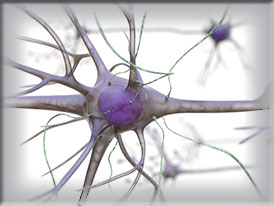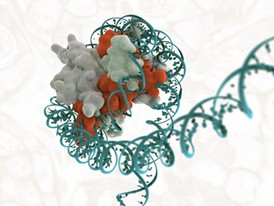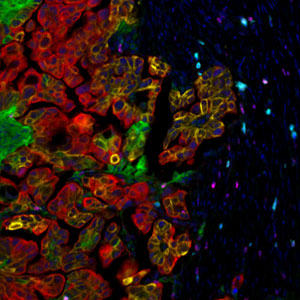Deciphering the Molecular Pathology of Alzheimer’s Disease
Alzheimer’s disease presents stereotypical pathological features including the abundance of amyloid deposition and tauopathy. Affected brain regions also exhibit reactive astrogliosis, neuroinflammatory responses, and vascular pathology. Neuronal and synaptic loss is also evident. Various mouse lines have been created to investigate Alzheimer’s disease and most of the models exhibit a subset of the defining pathological features of the disease. In this webinar the speaker will discuss the use of Alzheimer’s disease transgenic mouse models to evaluate pathological features by both traditional immunohistochemistry and new tissue processing methods that enable whole- brain imaging. These immunolabeling methods further the investigation of molecular and neural circuit mechanisms of Alzheimer’s disease.
The Use of Highly Validated Antibodies to Study Neurodegenerative Disease
Cell Signaling Technology’s (CST) mission to produce high quality and rigorously validated antibodies extends to our neuroscience products. We use a comprehensive approach, from the selection of targets that are the most relevant to the scientists’ current and future research, to the establishment of models for careful validation of the antibodies, and the formulation of ready-to-use antibodies for various experimental procedures relevant to the targets. The neuroscience portfolio comprises antibodies to cell type, sub-cellular compartment, and cell state markers; antibodies against important neurotransmitters; and a growing product line in the field of neurodegenerative diseases, such as Alzheimer’s Disease, Parkinson’s, Huntington’s, and ALS. Our cutting- edge antibody development technologies allow us to generate highly sensitive and specific antibodies to various amyloid-beta peptides, Tau phosphorylation sites, and other disease-research relevant proteins. In this presentation, we will discuss CST’s existing and up-coming products that will help neuroscientists’ research efforts.
Speakers

Li-Huei Tsai, Ph. D, Picower Professor of Neuroscience, The Picower Institute for Learning and Memory, Broad Institute, Senior Associate Member, Department of Brain and Cognitive Sciences, Massachusetts Institute of Technology
Li-Huei Tsai received her Ph. D. degree from the University of Texas Southwestern Medical Center at Dallas. She then took postdoctoral training from Ed Harlow’s laboratory at Cold Spring Harbor laboratory and Massachusetts General Hospital. She joined the faculty in the Department of Pathology at Harvard Medical School in 1994 and was named an investigator of Howard Hughes Medical Institute in 1997. In 2006, she was appointed Professor in the Department of Brain and Cognitive Sciences, and joined the Picower Institute for Learning and Memory at MIT.

Raphael Rozenfeld, Ph.D, Development Scientist, Cell Signaling Technology
Raphael Rozenfeld is in charge of the Neuroscience Antibody Portfolio at CST. He has been at CST for over 4 years and contributes to the scientific direction of Neuroscience product development. He has produced over 110 antibodies in the fields of neuroscience and membrane proteins. Before that, Raphael was a researcher at Mount Sinai School of Medicine where he studied the role of protein homeostasis in liver fibrosis, and the impact of G protein-coupled receptor heteromerization on receptor-mediated signaling in disease. His work was internationally recognized as demonstrated by publications in high impact journals and invitations to present at the 2010 Cannabinoids in Biology and Medicine Workshop and at the 2011 Experimental Biology conference, as well as invitations to contribute book chapters and reviews in prestigious journals such as the Trends in Pharmacological Sciences and Biochemical Journal. Raphael Obtained his Ph. D. and Pharm. D. from Université Paris V, Paris, France.
Who Should Attend?
This webinar will be ideal for academic and pharmaceutical researchers who are interested in using an antibody-based approach for advancing neuroscience or neurodegenerative disease research.
Xtalks Partner
CST
Cell Signaling Technology (CST) is a private, family-owned company, founded by scientists and dedicated to providing high quality research tools to the biomedical research community. Our employees operate worldwide from our U.S. headquarters in Massachusetts, and our offices in the Netherlands, China, and Japan.
Media Partner
You Must Login To Register for this Free Webinar
Already have an account? LOGIN HERE. If you don’t have an account you need to create a free account.
Create Account





